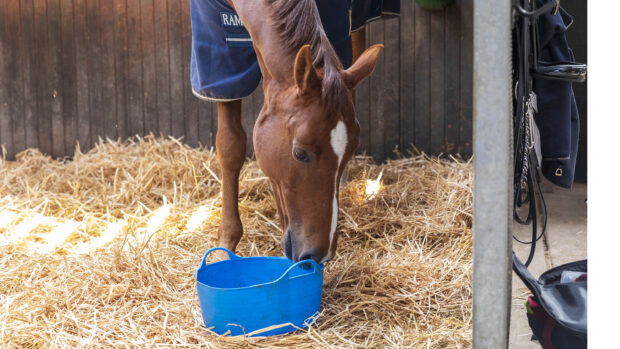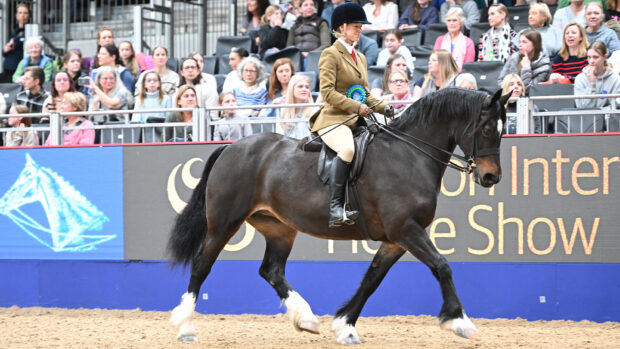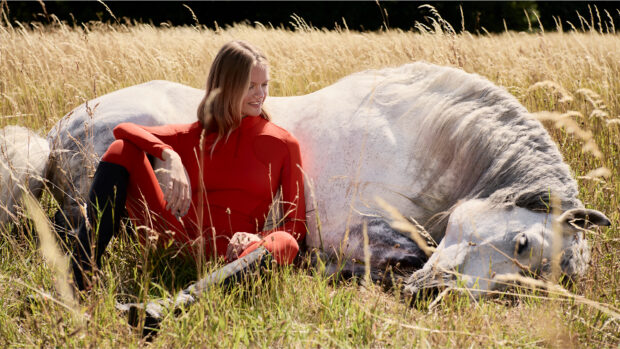There are 39 breeds registered under the pastoral breeds group with the UK Kennel Club. It may come as a surprise that only one pastoral breed features in the top 15 most popular dog breeds in the UK, because they are typically highly intelligent, courageous breeds with excellent trainability. There are the familiar names, such as the German Shepherd Dog, and the more obscure, such as the Estrela Mountain Dog or Hungarian Kuvasz.
Essentially, the pastoral umbrella covers dogs who were originally bred to manage livestock, such as cattle, sheep and reindeer – the word “pastoral” relating to the keeping or grazing of sheep and cattle. There are three sub-sections: those whose role is to herd, working in conjunction with a handler; the drovers, who would move animals over large areas; and the guardians, who would live with the flock and protect them from predators such as wild animals.
Several of the breeds are almost identical both in name and physique, differing only in their coat length and texture. For instance, there are four separate breeds of Belgian Shepherd Dogs, and two types of Collie and Pyrenean Sheepdog. They are basically the same dog, with their different coats reflected in their names – such as rough or smooth. Originally, they were not split and could even be born within the same litter and interbred, but now they have been categorised as distinct breeds.
On the other hand, there is plenty of variety among the breeds. Most of them have features essential to whatever part of the world they were developed to herd and guard the local livestock. They typically have water-resistant, dense, double coats to protect them from working in harsh elements. But their coats vary hugely, from the magnificent cords of the Hungarian Komondor to the sleek smooth collie. The shaggy Old English Sheepdog is worlds apart from the diminutive and short-haired Welsh Corgi. The slower, larger breeds are more likely to perform the guardian role, while the agile “heelers” crouch, sprint and nip at the feet of cattle and sheep to get them on the move and in the required direction.
Most of the pastoral breeds are still used to manage livestock today, although many dogs are kept as pets in the home and have never been trained to work. However, that herding instinct tends to be innate and you may find them rounding up children and other animals in the back garden! They do benefit from an outlet for this natural inclination to work, which is why so many herding dogs, such as the Border Collie, are brilliant at flyball, agility and other competitive sports.
Let’s take a look at a handful of different pastoral breeds that encapsulate the variety within the group.
Examples of pastoral breeds

Abundant energy, big brains and an appetite for work are the hallmarks of the Border Collie
Border Collie
This brilliant sheepdog is known to be the smartest of all dog breeds. Bred to be a sheepdog, a job they still do superbly, they are also employed as sniffer dogs. They excel in dog agility as they are so trainable, wonderfully agile and athletic, and can corner like they’re on rails.
They need plenty of exercise and stimulation to keep those busy brains occupied, or they may find an unwanted outlet for their energy, so are best suited to a very active, outdoorsy home.

The guardian of the flock
Komondor
A large, powerfully built dog with a distinctive corded coat, the formidable white Komondor was bred to guard livestock. It’s also known as the mop dog, on account of its dreadlocks, and hails from Hungary, where it is a national treasure. It is said that this remarkable coat would protect the Komondor from wolf bites, as it guarded the flock from predators.
A natural guardian, this breed will defend its own fearlessly and is instinctively protective of its family, flock and territory. This vigilance means that they tend to stay awake at night to keep guard, and doze during the daytime.

The smart red stockings are a typical feature of this imposing sheepdog
Beauceron
The sheepdog has Gallic origins, coming from the plains of Beauce, in northern-central France, where it is also called the Berger de Beauce or Bas Rouge (red stockings, on account of its red feet!). The Beauceron is a large, imposing dog, but an agile and athletic herder as well as a fearless protector.
Physically, they are muscular and rugged, yet graceful, with their shiny black coats with fox-red highlights (can also be harlequin); while in personality they tend to be smart, spirited and confident. They can be dominant if not well-socialised and trained.

Skill, speed and strength
Australian Cattle Dog
A typical pastoral breed, having a natural instinct to work all day long. The Australian Cattle Dog is renowned for its speed, strength and bottomless stamina. They have also been known as the Australian Heeler, due to its method of crouching low as it works and then nipping the heels of the cattle to move them along. Unlike the Australian Shepherd Dog, this one really does originate in Australia!
They bond closely with their owners, being very protective over them and wary of strangers, so they make natural guard dogs on the farm.
They typically have a distinctive speckled coat, in either red or blue.

Small but mighty, the Welsh Corgi (Pembroke) is a big dog in a little package
Welsh Corgi (Pembroke)
The Pembroke breed of the corgi is slightly smaller than the Cardigan, and the more popular – possibly because it is renowned as the late Queen’s favourite breed.
The Welsh Corgi is the traditional droving dog of Wales and is one of the world’s most popular herding breeds. Their short legs bely their speed and agility as this is a strong, athletic and lively little herder, with powerful legs and a deep chest that enable him to work hard all day long. They are fearless and independent as befits a little dog bred to move cattle, while also being affectionate companions in the home.
A wonderfully trainable, loyal and fun little working dog.
Pastoral breeds recognised by The Kennel Club
- Anatolian Shepherd Dog
- Australian Cattle Dog
- Australian Shepherd
- bearded collie
- Beauceron
- Belgian Shepherd Dog (Groenendael)
- Belgian Shepherd Dog (Laekenois)
- Belgian Shepherd Dog (Malinois)
- Belgian Shepherd Dog (Tervueren)
- Bergamasco
- Border Collie
- Briard
- Catalan Sheepdog
- Collie (rough)
- Collie (smooth)
- Estrela Mountain Dog
- Finnish Lapphund
- German Shepherd Dog
- Hungarian Kuvasz
- Hungarian Puli
- Hungarian Pumi
- Komondor
- Lancashire Heeler
- Maremma Sheepdog
- Norwegian Buhund
- Old English Sheepdog
- Picardy Sheepdog
- Polish Lowland Sheepdog
- Pyrenean Mountain Dog
- Pyrenean Sheepdog (longhaired)
- Pyrenean Sheepdog (smooth faced)
- Samoyed
- Shetland Sheepdog
- Swedish Lapphund
- Swedish Vallhund
- Turkish Kangal Dog
- Welsh Corgi (Cardigan)
- Welsh Corgi (Pembroke)
- White Swiss Shepherd Dog

Dogs Of The Shepherds | Amazon
This book is for all those who admire the most valuable of all the working dogs: sheepdogs, cattle dogs and flock protection dogs, the indispensable farmer’s servants and companion dogs for thousands of proud dog-owners across the globe.
You might also be interested in…

The same, but wildly different: how the terrier breed umbrella covers glorious variety as well as shared traits

Best dog cooling mats for hot and bothered pooches

Is extinction likely for some British dog breeds? Here are the 35 listed as vulnerable

How to keep children safe around dogs – and vice versa

Does your pooch make the cut? The 15 most popular dogs in the UK – and some may surprise you

Subscribe to Horse & Hound magazine today – and enjoy unlimited website access all year round
Stay in touch with all the news in the run-up to and throughout the Paris Games, Burghley, HOYS and more with a Horse & Hound subscription. Subscribe today for all you need to know ahead of these major events, plus online reports on the action as it happens from our expert team of reporters and in-depth analysis in our special commemorative magazines. Have a subscription already? Set up your unlimited website access now




